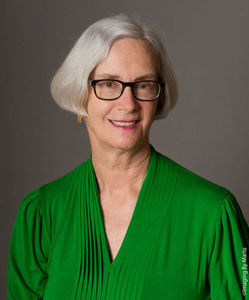Cynthia Flood on the Books of Her Life: Lessing, Sewell, Kipling, & More
Whether she is telling a story that stretches over decades or one that is compressed into a matter of hours, Cynthia Flood has a knack for peeling back the surface and delving deep into the human condition. In her short story collection What Can You Do (Biblioasis), she does just that, each story unflinching in its realism and honesty.
Today we are excited to speak with Cynthia as part of our WAR: Writers as Readers series, where we ask writers about the books that have shaped them, the ones they feel guilty for not having gotten to yet, the ones that made them laugh and cry, and much more.
Cynthia tells us about how much more she saw in a favourite childhood read after she was grown, the Nobel winner whose writing got to her at an influential time, and the CanLit sensation whose book is having such an effect on her it bears repeating.
The first book I remember reading on my own:
My father used to read Kipling’s Just So stories aloud. I loved all of them, especially How the Elephant Got His Trunk and The Cat Who Walked By Himself. My Dad read well, but to experience the stories alone, in silence, able to re-read favourite lines and phrases, felt marvellous.
A book that made me cry:
Black Beauty brought delight every time, and also tears. After a while I knew to expect the latter and enjoyed a good cry, reliably in the chapter titled “Poor Ginger.” Re-reading the book years later, with my children, made me more angry than sad. The casual cruelty to animals shown in Black Beauty flourishes still. I realized too that Sewell was much concerned about the hard lives of the humans working with horses. I hadn’t understood that, reading as a child.
The first adult book I read:
At thirteen I read Margaret Mitchell’s Gone With The Wind and Somerset Maugham’s Of Human Bondage. GWTW seemed awfully slow — an assessment confirmed decades later, when I quit after 30 pages. Still, I had my first crush, on Clark Gable, when I saw the movie! As for Maugham, I went on to admire many of his realist novels and stories. (I still think he’d have done better to use his own stammer, rather than a club foot, as a handicap for his hero in OHB). Maugham writes well about obsessions, hypocrisy, racism, thwarted love, the destructive power of Good Manners, the desire to control others.
A book that made me laugh out loud:
Almost anything by P. G. Wodehouse! I started young and read all of Jeeves, all of Emsworth, and much more. Later on I enjoyed PGW’s memoir Bring On The Girls, about his years as a lyricist for New York musicals, working with Kern, the Gershwins, etc. I’ve read two bios of PGW, both awful. Some people can’t be biographed, but I’d recommend George Orwell’s 1946 essay, In Defence of P. G. Wodehouse. PGW is really too stylized for my taste now, but sometimes no other writer will do. When reading him of course I’m remembering reads of long ago, with uncles, aunts, brother.
The book I have re-read many times:
In my teens I read and re-read many volumes in the Cherry Ames, Student Nurse series. (My interest in actual nursing: zero.) I also read and re-read the interminable sequels to Anne of GG, Louisa Alcott’s Little Women, and Laura Ingalls Wilder’s Little House on the Prairie, each worse than the one before but to an addict irresistible. Now I think that, in part, I was studying the distinctions between good and poor writing — asking Why does this feel so thin?
A book I feel like I should have read, but haven't:
I should have read Gabriel Garcia Marquez’ One Hundred Years of Solitude. Every few years I try again, get lost again amid all the characters, go back and reread, then give up once more.
The book I would give my 17-year old self, if I could:
I’d give my 17-year-old self Our Bodies, Ourselves by the Boston Women’s Health Collective... but I’d turned 33 by the time of its publication.
Your CanLit News
Subscribe to Open Book’s newsletter to get local book events, literary content, writing tips, and more in your inbox
A book I feel strongly influenced me as a writer and why:
I discovered Doris Lessing just when I was starting to write seriously. I read everything she wrote and admired most, though her speculative fiction never drew me in. Her realism, her attention to setting (wilderness or city, farm or cafe) as a major force in human lives, her inclusion of radical political content, her angry women fully engaged in their worlds — all these I still value in Lessing’s work. She exposes self-deception and cowardice with blistering power. More recently, I found very saddening Jenny Diski’s memoirs of her connection with Lessing, and her account of this great writer’s declining years.
The best book I read in the past six months:
Impossible to say just one! On the list: Jenny Erpenbeck’s The End of Days, Mona Awad’s Thirteen Ways of Looking at a Fat Girl, Mohsin Hamid’s Exit West, Julie Bitek’s 100 Days, and Carys Davies’ short stories, The Redemption of Galen Pike.
The book I plan on reading next:
I’ve just started Katherena Vermette’s The Break. Painful. Brilliant. Painful. Brilliant.
A possible title for my autobiography:
Stop Reading And Do Something Useful.
_______________________________________________
Cynthia Flood’s stories have won numerous awards, including The Journey Prize and a National Magazine award, and have been widely anthologized. Her novel Making A Stone Of The Heart was nominated for the City of Vancouver Book Prize in 2002. She is the author of the acclaimed short story collections The Animals in Their Elements (1987) and My Father Took A Cake To France (1992). She lives in Vancouver’s West End.



